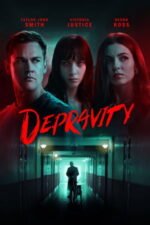The Weight of "Oops": Exploring Cinema’s Accidental Killings
Isn’t it fascinating how often cinema latches onto the fallout from mistakes? We love stories about grand schemes, deliberate villainy, but there's something uniquely compelling—and deeply unsettling—about a narrative sparked by an accidental killing. It’s not just about guilt; it's about the sudden fracturing of reality, the cascading consequences of a single, unforeseen moment. And it opens up such fertile ground for exploring human nature at its most vulnerable and desperate.
Think about it: when someone plans a murder, there's a certain level of theatricality, almost a perverse sense of control. But an accidental killing? That’s chaos unleashed. It throws people into situations they never anticipated, forcing them to confront their morality under immense pressure. You see that brilliantly in films like "Jawbreaker." The sheer absurdity – high school girls trying to cover up a death after a birthday mishap– is darkly funny, but also deeply unsettling. Their attempts at maintaining appearances only amplify the tragedy and expose how fragile social structures can be when built on privilege and fear.
Then you have something like “Room of Death," which takes that initial accident—a hit-and-run—and just keeps piling on the complication. The theft of the satchel, the kidnapped girl, the witness… it becomes a spiraling vortex of desperation. What starts as an awful mistake rapidly transforms into a full-blown criminal enterprise, forcing these characters to make increasingly terrible choices. It’s a stark reminder that even small decisions can have monumental repercussions.
“What Richard Did” offers a slightly more grounded, yet equally powerful, exploration. The accidental act is central to his character arc, shattering the carefully constructed image of the golden boy and prompting him (and those around him) to confront uncomfortable truths about class, responsibility, and consequence. It's a quieter kind of horror than you find in something like “Room of Death,” but no less impactful.
Even "Depravity," with its slow burn suspense, plays on this idea. The suspicion surrounding the newcomer isn’t rooted in concrete evidence at first; it’s born from the disruption his presence creates, a fear of the unknown that can easily be twisted into something sinister. While not explicitly an accidental killing plot itself, it highlights how unintended consequences—even just unsettling someone—can trigger dramatic and devastating events.
What I find so interesting is how these films, across genres – teen comedy ("Jawbreaker"), thriller (“Room of Death”), coming-of-age drama (“What Richard Did”) – consistently demonstrate the universality of this theme. It taps into a deep-seated fear: that we are all capable of causing harm, even without intending to. And that, my friends, is what makes these stories so viscerally compelling.
So next time you're looking for something to watch, consider exploring one of these accidental killing narratives. They’re not always easy viewing—they can be tense, uncomfortable, and frankly quite dark—but they offer a fascinating window into the complexities of human behavior and the unexpected power of a single, regrettable moment.





























